Garage Life
I remember spending an agonizing afternoon on my back, butt and knees on the cold concrete floor of my dad’s garage, trying to coerce a transmission, axle and wheel assembly back together. We’d just replaced my Jetta’s clutch, fried by a combination of adolescent exuberance and insensitive pedal technique. But, like some twisted Rubik’s cube, the various pieces defied logical integration. As afternoon drew into evening, my dad had a brainwave. “Let’s try again in the morning.” The next day, the parts simply fell into place; final assembly was as obvious as a pimple on a prom date.
That timeout was the trick that helped everything flow. It’s a technique I still use when confronted with seemingly insoluble problems: mechanical, psychological and spiritual. Like any boy who spends quality time working on cars, I learned a lot of life’s lessons in my Dad’s garage. Strange, then, that home repair, this crucible of character, this once pervasive American right of passage, seems endangered. I wouldn’t have expected our society to give up its garage culture without a fight. But then I wouldn’t have expected its original benefactors to be the same people conspiring to take it away.
"You can't work on a car yourself anymore." It's true: you can't. Even small garages would be lost without sophisticated and expensive diagnostic computers. Beyond that, imports have raised the electro-mechanical game to a level of near-total non-intervention. For decades, nothing could have been further from the truth; hundreds of thousands of cars received their regular maintenance and repair at the hands of their owners. One 1920's product manual urged owners not to be afraid of tackling these jobs: "Our company service men have no more brains than you do."
Now, all products are disposable. The impulse to fix instead of replace is gone, destroyed by the unstoppable efficiencies of mass production. Basic maintenance is either cheaply provided or rendered unnecessary. Change your own oil? About as likely as writing a personal letter. Check the transmission fluid? No way to do it on my car. The last time I bought wiper blades, the guy had installed them before I left the parking lot. Today’s corner garages are for pumping gas, slapping on an inspection sticker or parking.
All is not lost. In my Michigan locale, home garages and shops bigger than the houses they accompany are de rigueur. There are nearly as many auto parts stores in my neighborhood as there are gas stations. Those kids with their tuner cars, jeez. Even when Sears was having its recent troubles, the Craftsman division was still going strong. And there are custom bike and hot rod shows on TV every day of the week. All this seems to indicate that garage culture isn’t dying– it’s just entering a new phase.
The ambition for something better– faster, cooler or just plain different– continues drawing us back to the garage. Pistonheads are still entranced by the tools that make them feel productive and powerful. Attracted to the atmosphere that makes them feel vital and resourceful. It's labor, workmanship and expertise, but it's also escape and toys and play. It's a sanctuary. And important things happen when we return to it. We need those times. We need those lessons.
As the day-to-day drudgery of human existence is erased by the machines we create, it leaves less and less for us to do. Less to accomplish. Less to endure. We risk becoming idled and isolated. But the garage teaches us otherwise. It reminds us that the machine is an extension of the human. It is of the human, by the human and for the human. That's a lesson growing steadily in importance, as modern machines continue to elude our individual understanding and deny their dependence.
As machines become smaller, cheaper and more ubiquitous, they erode our general attitude of self-reliance. The garage teaches us otherwise. It demonstrates that we can overcome obstacles and alter our fates. It puts us in control and teaches both confidence and humility. It prepares us to look within ourselves for solutions and urges us to persevere. We need the garage. We need the sights, sounds and smells. The artifacts, rituals and garments. The benchmarks that help us understand and appreciate the social hierarchy built on knowledge, skill and craft.
We live in an age in which the quality of life for those of even modest means exceeds that enjoyed by almost everyone who has come before us. But modern conveniences take as well as give– sometimes before we even realize the importance of what’s been taken. We need to witness the automotive miracles worked and the mechanical souls resurrected. We need it for our sanity, and for our survival. We need the garage.
More by Bryan Myrkle
Latest Car Reviews
Read moreLatest Product Reviews
Read moreRecent Comments
- JMII Based on the human drivers I encounter everyday I'll happily take my chances with a computer at the wheel.The highway driver assist system on my Santa Cruz is great, it can self drive perfectly in about 90% of situations. However that other 10% requires you to be in control and make decisions. I feel this is the problem with an AI driving a car, there are times when due to road construction, weather conditions or other drivers when only a human will know what to do.
- Hari Your route home sounds like the perfect stretch for a car like the Alfa Romeo Giulia. Its renowned handling and dynamic performance make it an ideal match for those curves. For enthusiasts or potential owners interested in understanding all the capabilities of the Giulia 2017, the owner’s manual is an invaluable resource. Check it out here: https://chatwithmanuals.com/automobiles/2017-alfa-romeo-giulia-owners-manual/. Our AI-powered chat makes navigating the manual simple, helping you quickly find specific details about the car's features and specs. Perfect for making the most out of those driving moments and truly understanding your vehicle!
- Dale I'd consider the RAV4 if the Prime were on the table as paying for gas is for suckers. Otherwise, we have a couple of Mazdas and they are swell. I've driven older versions of both and the CX-5 is a nicer place to live.
- Haran Spot-on review of the Mercedes-AMG GT’s price adjustments and new features! For those intrigued by the all-wheel drive and enhanced features of the latest model, you can delve deeper with the complete operator's manual available here: https://chatwithmanuals.com/automobiles/mercedes-amg-gt-operators-manual-edition-c2020/. It’s a fantastic resource for understanding all the specs and new additions without getting bogged down by the complexity typically associated with car manuals. Chat with the manual using AI to quickly find exactly what you need to know about this sporty beast. Perfect for those who appreciate detailed insights on their luxury investments!
- Flashindapan Beautiful color combinations. I assumed they stop selling the TT here at least five or six years ago.



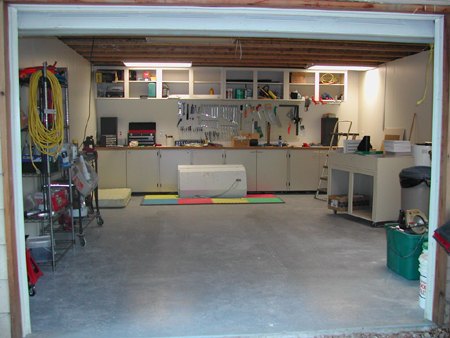















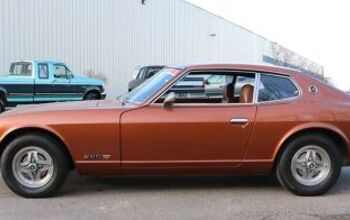
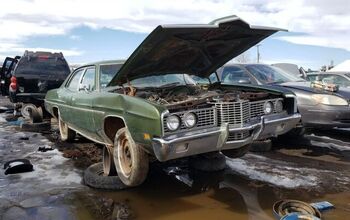
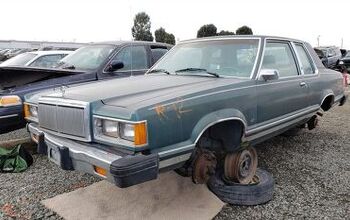
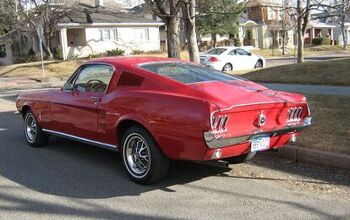
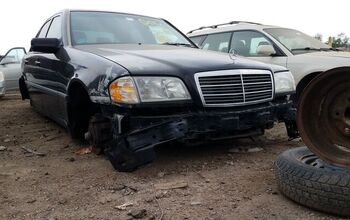










Comments
Join the conversation
Excellent Article. I emailed to my father and brothers. We all had a great time recalling the lessons taught and lessons learned in the garage.
Well said, I can't agree more! Experienced another automotive miracle this evening in the garage: a once-thought dead 6x9 woofer turned out to be merely disconnected after 100+ miles of open tracking with a loose fire extinguisher in the trunk. If I had a stereo shop do the install, I'd never know the truth about my car. $180 goes back in my pocket come Monday: just more proof that we can't live without our garages.